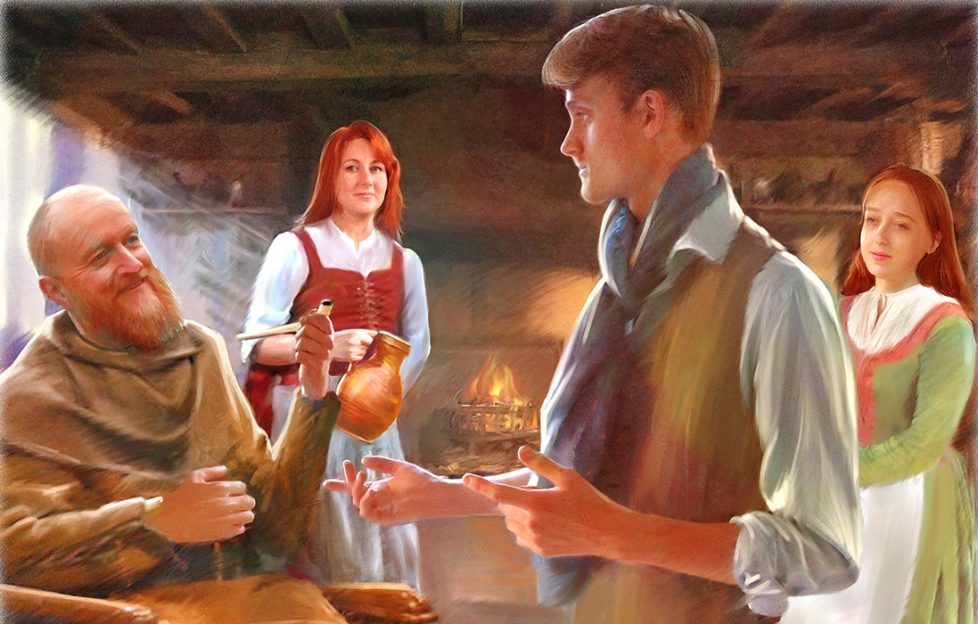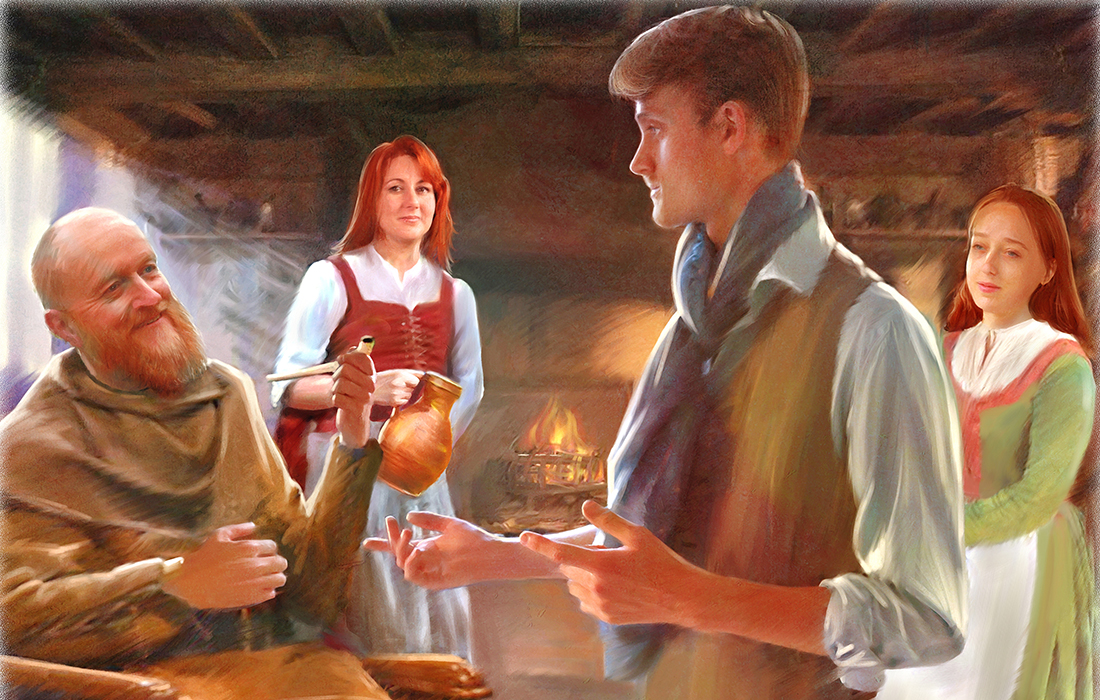The Apothecary’s Apprentice 32

The Apothecary's Apprentice
« Previous Post- 1. The Apothecary’s Apprentice 01
- 1. The Apothecary’s Apprentice 32
Thomas lost no time in searching for work, but word of his disgrace had spread, and the apothecaries of the town, turned him away.
Falling back on his academic abilities, he looked next for office work.
Brickyards, carriage-makers, tanneries, wheelwrights, timber yards – all were covered.
Here, Thomas’s countryman appearance – the leather jerkin laced at the back, baggy breeches and felt hat – stood against him in a trade that demanded a more formal mode of dress.
No-one, it transpired, could offer work for a young man down on his luck.
Fortunately the weather was kind, and every night he headed for Beam Heath and the abandoned spinney to consume whatever food was going spare in Gryce’s kitchen, pressed on him by Jennet.
He would then curl up in a mossy hollow beneath the rowans, wrapped in his cloak, and slumber until a new dawn sent shafts of light through the lacy branches above.
The heath was now deserted and desolate.
All four groups of the herb gatherers had gone their separate ways.
The only signs that anyone had been there were the scorched rings of dowsed fires and tracks left by horses’ hooves and wheels of wagons.
All things considered, Thomas was obliged to lower his sights and look for more menial work in the hostelries of the town.
Oddly enough, it was Henry Gryce who came to his aid.
Thomas was crossing the town square when Gryce hailed him from the doorway of the shop.
“Sir?” Thomas eyed the man with apprehension.
“Master Tewke, it came to my notice that you are seeking work.”
Had Jennet put in a word here? Thomas would not have been at all surprised.
A hint of what could have been sympathy showed in the apothecary’s gaze.
“The Crown and Sceptre are in need of a yard man. You might try there.”
“My thanks, sir. I shall do so without delay,” Thomas replied.
Gryce vanished into the shop before he could be spotted and reported for conversing with one with a black mark against his name.
Thomas knew what it had cost the apothecary to approach him and, full of gratitude, he headed for the weather-bleached, timbered and pargeted inn a few doors along.
Here, to his immense relief, he was taken on.
The working day was long and back-breaking.
Thomas was up before dawn, unloading barrels of ale from the brewery drays and rolling them to the cellars beneath the building, where he was obliged to stack them in regular rows.
Scorned by his fellow workers, who delighted in taking advantage of Thomas’s fall from grace, he tended the hostelry horses, mucked out the stalls and emptied the inn privies.
He swept the yards and carried coals and logs indoors to replenish the cavernous fireplaces, which seemed to swallow up fuel faster than he could supply it.
At everyone’s beck and call, he looked forward to the day’s end when he could avail himself of whatever was provided by way of a meal in the hostelry kitchen.
Then he would retire to a filthy pallet in the feed loft above the stables and lose himself in the dreamless sleep of sheer exhaustion.
For his labours he was paid little by the publican, with a take it or leave it attitude that made him grit his teeth in an effort for control.
It was a far cry from the travelling life to which he was accustomed.
He missed the fresh, clean air, the simple pleasure of washing away the day’s sweat and grime in cool, fast-flowing brooks or dark lakes.
He missed the companionship of other herb gatherers, the respect of the marketeers and the town apothecaries with whom he had traded.
He missed the warm West Country tones of Amos and Cecily.
He found himself thinking fondly of Agnetta in a brotherly sort of way: her dancing step and flashing eyes, the playful sparring.
There was compensation. For some strange reason the town of Nantwich had a claim on him.
He never had felt happy about leaving when the time had come for the herb gatherers to pack their wagons and move on.
Now he was here for good, and his current place of work was not far from Jennet – and that was worth a lot.














